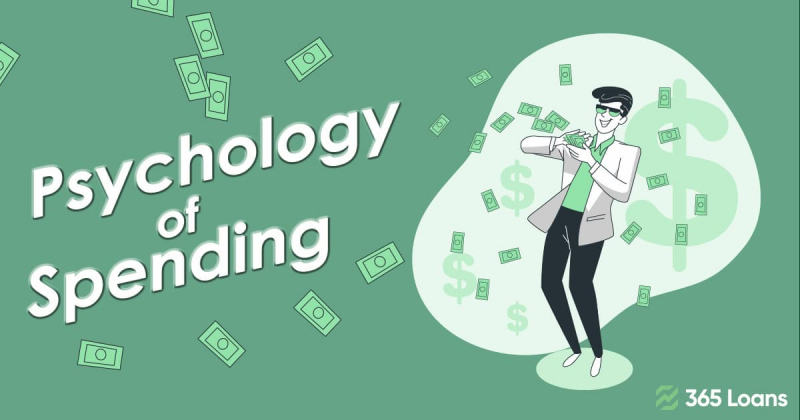None of us have perfect spending habits. Even if you are a regular money saver, you would still feel there is more you could have saved. Still, some of us do not realize our spending habits and how we spend a particular way.
Saving money does not require just good mathematical skills; it needs a psychological shift in our spending nature. Many of us link savings with budgeting or income-expense comparisons. That holds for many people going without sufficient income resources and proper budgeting. But have you ever wondered why people with abundant resources still fail to save money by the month-end?
“When people buy lottery tickets, they’re engaging in risky behavior with their money. When they buy insurance, they’re showing risk-averse behavior with their money. Doing both at the same time shows an inconsistent attitude toward risk–and yet many people do this.”
Drazen Prelec, associate professor of marketing at the Sloan School of Management
What is the psychology of spending, and how does it mold your spending habits?
How to Control Bad Spending Habits
It is the way we tame our brains. Some like to live by the rule book; others live the way they find pleasure. Our emotions, values, and goals also impact our spending behaviors, directly affecting our financial situation. The truth is that marketers exploit the human psychology of spending to lure them to more purchases.
You can spend for various emotionally-driven reasons, such as to feel better than others, to satisfy others, to cover perceived gaps in your life, and others. People become trapped in a quest to elevate their social standing, happiness, or influence. Although it would logically enable us to have more of those things that we emotionally desire, increasing our savings does not, in contrast, give us that immediate emotional joy that spending does.
As a result, here are a few psychological marketing strategies used to make you spend more.
- Impulse Buying: You will often wander through the market shelves and find “attractive” offers that would make no sense to buy otherwise. You will be tempted to buy small items at low prices that you would not purchase usually. That sudden attraction is impulse buying behavior.
- Credit Availability: We all do carry credit cards. When we do not pay physical currency notes, we do not like “paying the money”. People having more credit limits tend to spend more.
- Scarcity: It does not happen always, but many of us buy more with seasonal shopping, fearing losing out on our favorite items. The scarcity fears make us buy more and buy quickly.
- Discount-Reward Relation: That is a commonly observed phenomenon. We will love discounts and rewards. Who would not want more air miles with certain spending, say a pair of shoes?
Now that you have grasped the basics of spending psyche, let us explore some ways to bring more controls.
Self-examine your habits objectively
You cannot fix it unless you know it is broken. So take a closer look at your spending triggers. Examine your spending habits objectively. Everyone lives with unique rules and practices.

Perhaps you never planned a monthly budget. You may often buy “branded” items that cost you more. Or for example, some people dine out more often than others. Imagine $4 savings on a take-out coffee daily.
Create your unique Financial Plan
Making monthly or even weekly budgets will be just one part of your financial planning. Think of your long-term financial objectives. Long-term financial plans include retirement contributions, house mortgages, and long-term capital investments.
You cannot realize financial independence unless you save money. Draft your short-term financial plans. Match your spending with income, keeping aside savings first.
Pay with cash often
It is the human psyche to spend more with available credit. However, a little transformation with often paying by cash would drastically change your spending nature.
Many people overspend without realizing the credit limits. That incurs higher interest rates and extra charges on your credit card statement. So put an extended ban on cash withdrawals with your credit card too.
Avoid impulse buying with preplanning
We all make shopping lists, but we all slip away too. Get into the habit of preplanning before shopping and stick to the plan. Start monitoring the spending list even if you cannot cut out on spending straightaway. As a starting point, buy only what you listed and for what you have allocated a budget.
Compare Budgets and Actuals
That is called variance analysis in corporate finance. There is no use in making budgets if you do not implement controls. You may end up saving a few dollars on a daily grocery budget or may overspend on a monthly clothing budget. Once you dig deeper into where you have been spending extra, you will start realizing the controls.
Switch to do it yourself
It may sound odd and perplexing to you, but there are many tasks that you could do by yourself. Of course, you cannot be a jack of all trades; no one is. But a few simple tasks, to begin with, say cooking pasta at home rather than ordering online with a restaurant app. A minor plumbing repair by yourself can save you trouble and money.
Educate yourself with Financial Literature
Not all of us have adequate financial education during our college studies. Comparing an APR mortgage with a fixed-interest rate requires knowledge of finance. Personal finance also requires a sound knowledge base. Do not shy away from seeking expert advice.
Your spending habits may not significantly contribute to your financial woes, but they play a considerable part. Educate yourself with basic financial literacy concepts. For example, credit cards typically charge an interest rate above 15%; compare it with a secured loan rate of 4-5%.
A minimalist approach to spending
Although it may not be for everyone, a minimalist approach to buying might help people focus on requirements rather than emotions when making purchases. It enables customers to spend deliberately and discover ways to live on less to achieve long-term financial goals.

Do you believe you could succeed with a simple financial strategy?







